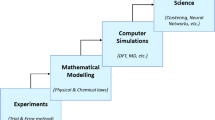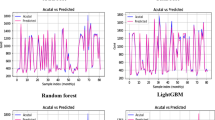Abstract
As a broad subfield of artificial intelligence, machine learning is concerned with the development of algorithms and techniques that allow computers to learn. These methods such as fuzzy logic, neural networks, support vector machines, decision trees and Bayesian learning have been applied to learn meaningful rules; however, the only drawback of these methods is that it often gets trapped into a local optimal. In contrast with machine learning methods, a genetic algorithm (GA) is guaranteeing for acquiring better results based on its natural evolution and global searching. GA has given rise to two new fields of research where global optimization is of crucial importance: genetic based machine learning (GBML) and genetic programming (GP). This article adopts the GBML technique to provide a three-phase knowledge extraction methodology, which makes continues and instant learning while integrates multiple rule sets into a centralized knowledge base. Moreover, the proposed system and GP are both applied to the theoretical and empirical experiments. Results for both approaches are presented and compared. This paper makes two important contributions: (1) it uses three criteria (accuracy, coverage, and fitness) to apply the knowledge extraction process which is very effective in selecting an optimal set of rules from a large population; (2) the experiments prove that the rule sets derived by the proposed approach are more accurate than GP.
Similar content being viewed by others
References
Davidson JW, Savic DA, Walters GA (2003) Symbolic and numerical regression: experiments and applications. Inf Sci 150(1/2):95–117
Giarratano J, Riley G (1998) Expert systems-principle and programming, 3rd edn. PWS Publishing Company, Boston
Goldberg DE (1989) Genetic algorithms in search, optimization, and machine learning. Addison-Wesley, Reading
Hashemi RR, Blanc LA, Rucks CT, Rajaratnam A (1998) A hybrid intelligent system for predicting bank holding structures. Eur J Oper Res 109:390–402
Holland JH (1975) Adaptation in natural and artificial systems. University Press of Michigan, Ann Arbor
Holland JH, Reitman JS (1978) Cognitive systems based on adaptive algorithms. In: Waterman DA, Hayes-Roth F (eds) Pattern directed interference systems. Academic, New York, pp 313–329
Holmes JH (1996) Evolution-assisted discovery of sentinel features in epidemiologic surveillance. PhD Thesis, Drexel University, Philadelphia
Holmes JH, Lanzi PL, Stolzmann W, Wilson SW (2002) Learning classifier systems: new models, successful applications. Inf Process Lett 82:23–30
Kovalerchuk B, Vityaev E (2000) Data mining in finance. Kluwer, Dordrecht
Koza JR (1992) Genetic programming, on the programming of computers by means of natural selection. MIT, Cambridge
Koza J, Goldberg D, Fogel D, Riolo R (1996) Genetic programming. In: Proceedings of the first annual conference. MIT, Cambridge
Liao PY, Chen JS (2001) Dynamic trading strategy learning model using learning classifier systems. In: Proceedings of the 2001 congress on evolutionary computation, pp 783–789
McIvor RT, McCloskey AG, Humphreys PK, Maguire LP (2004) Using a fuzzy approach to support financial analysis in the corporate acquisition process. Expert Syst Appl 27:533–547
Oh KJ, Kim TY, Min S (2005) Using genetic algorithm to support portfolio optimization for index fund management. Expert Syst Appl 28:371–379
Quinlan J (1986) Induction of decision tree. Mach Learn 1:81–106
Sette S, Wyns B, Boullart L (2004) Comparing Learning classifier systems and genetic programming: a case study. Eng Appl Artif Intell 17(2):199–204
Shin HW, Sohn SY (2003) Combining both ensemble and dynamic classifier selection schemes for prediction of mobile internet subscribers. Expert Syst Appl 25:63–68
Stolzmann W (2000) An introduction to anticipatory classifier systems. Lect Notes Artif Intell 1813:175–194
Sweency RJ (1988) Some new filter rule test: methods and results. J Financ Quant Anal 23:285–300
Trippi RR, Desieno D (1992) Trading equity index futures with a neural network. J Portf Manage Fall 19:27–33
Tsang PK, Li YJ (2004) EDDIE—automation, a decision support tool for financial forecasting. Decis Support Syst 37:559– 565
Wang YF (2003) Mining stock price using fuzzy rough set system. Expert Syst Appl 24:13–23
Wilson SW (1994) ZCS: a zeroth level classifier system. Evol Comput 2(1):1–18
Wilson SW (1996) Rule strength based on accuracy. Evol Comput 3(2):143–175
Wilson SW, Goldberg DE (1989) A critical review of classifier systems. In: Schaffer JD (ed) Proceedings of the 3rd international conference on genetic algorithms, pp 244–255
Yuan Y, Shaw MJ (1995) Induction of fuzzy decision trees. Fuzzy Sets Syst 69:125–139
Zhang Y, Bhattacharyya S (2004) Genetic programming in classifying large-scale data: an ensemble method. Inf Sci 163(1/3): 85–101
Author information
Authors and Affiliations
Corresponding author
Rights and permissions
About this article
Cite this article
Chen, MY., Chen, KK., Chiang, HK. et al. Comparing extended classifier system and genetic programming for financial forecasting: an empirical study. Soft Comput 11, 1173–1183 (2007). https://doi.org/10.1007/s00500-007-0161-3
Published:
Issue Date:
DOI: https://doi.org/10.1007/s00500-007-0161-3




